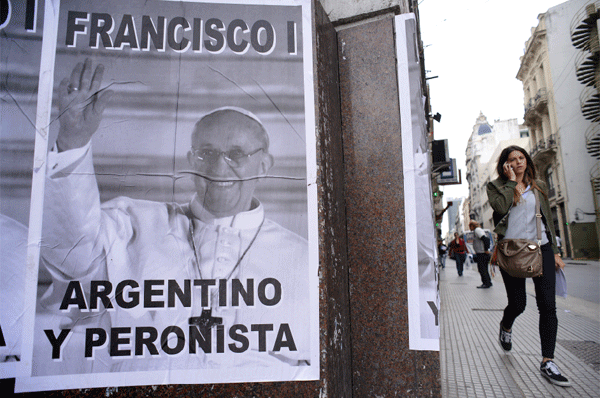{this was in news recently as the new Pope Francis (Jorge Mario Bergoglio) was the subject of allegations regarding the kidnapping of two Jesuit priests during Argentina's "Dirty War" and many other allegations with his role in this episode }



Q: What was the "dirty war" and how did it start?
Q: What is known about what happened?
Q: More than 20 years have now passed since these gruesome events. Why are they still causing so much controversy?
However, the decision needed the support of the country's Supreme Court in order to take effect - and judges waited another year before ruling that there was no time limit when it came to prosecuting crimes against humanity.
The final Supreme Court ruling to uphold the overturning of the amnesty laws came nearly two years after the original vote in Congress.


Q: What was the "dirty war" and how did it start?
- The "dirty war" was a campaign waged by Argentina's military rulers against left-wing opponents.
- It began when a military junta led by Gen Jorge Videla seized power on 24 March 1976, in response to a period of political instability and growing violence after the death of President Juan Peron.
- The military's aim was to wipe out left-wing terrorism - but the terror carried out by the state exceeded anything previously seen in Argentina.
- Between 10,000 and 30,000 people were killed or disappeared before Argentina returned to civilian rule with the election of President Raul Alfonsin in October 1983.
- Initial details about the fate of "the disappeared", as they are known, came from the accounts of those few who lived to tell the tale.
- According to their testimony, people suspected by the military of being "subversive" would be abducted in raids by plainclothes men.
- Once kidnapped, they would be taken to one of more than 300 detention centres.
- The most notorious of these was the Naval Mechanical Centre in the capital, Buenos Aires - known by its initials in Spanish as Esma.
- Many were tortured using electric shocks and other methods.
- Children were tortured in front of their parents and parents in front of their children.
- The ordeal could last for weeks or even months, usually ending in the death of the victim.
Q: More than 20 years have now passed since these gruesome events. Why are they still causing so much controversy?
- Because the military did its best to ensure that no-one would ever be brought to justice for them. In the run-up to the return to civilian rule, the junta granted a blanket amnesty for all offences connected with the "dirty war".
- President Alfonsin revoked that amnesty. But after pressure from the military, including several uprisings, efforts to try the perpetrators ground to a halt.
- Various laws and decrees passed by Mr Alfonsin's government and that of his successor, Carlos Menem, gave protection to military officers who might otherwise have faced prosecution.
- Finally, in August 2003, Congress voted to scrap the amnesty laws, paving the way for fresh trials.
However, the decision needed the support of the country's Supreme Court in order to take effect - and judges waited another year before ruling that there was no time limit when it came to prosecuting crimes against humanity.
The final Supreme Court ruling to uphold the overturning of the amnesty laws came nearly two years after the original vote in Congress.